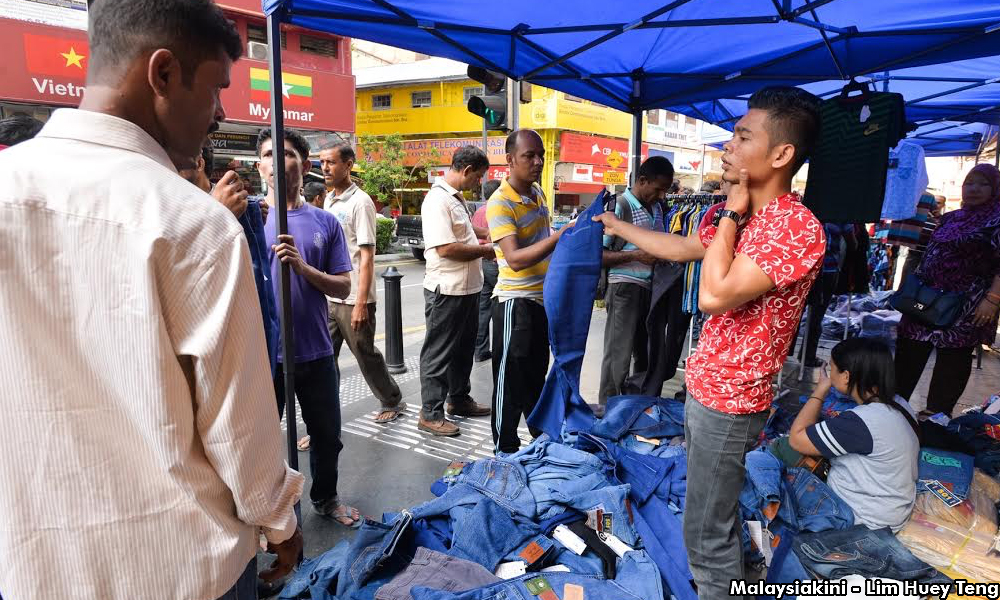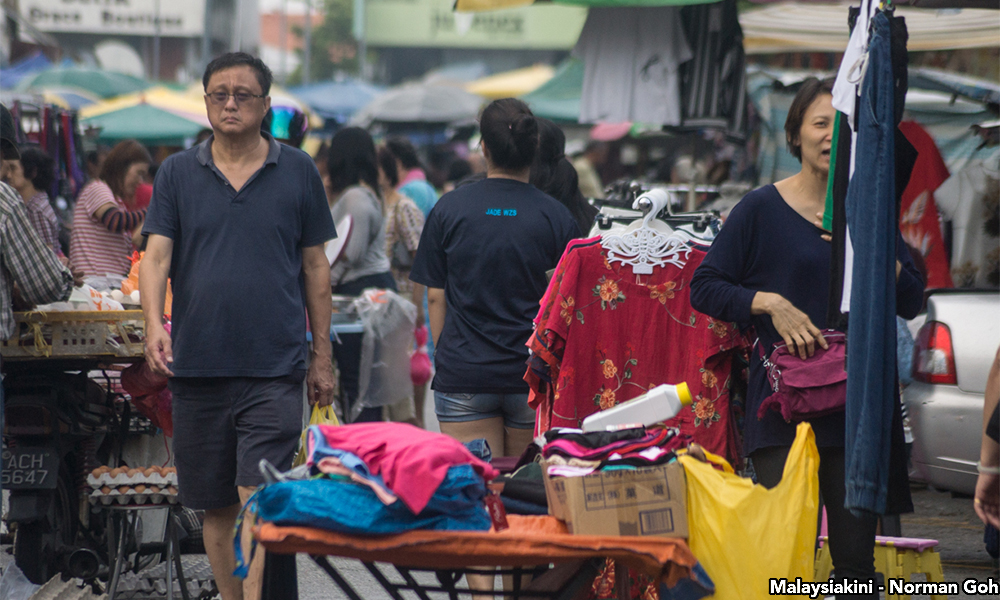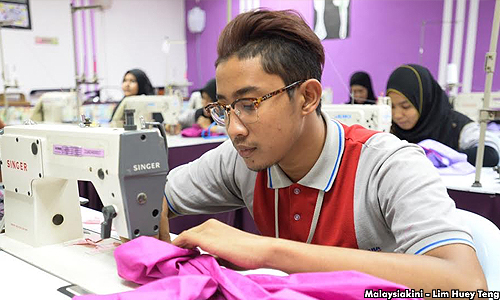
Human Resources Minister M Kulasegaran walked into a minefield when he announced the ban on foreign cooks.
Kula has a point. Why should imported general workers end-up as cooks and manage food stalls?
He did not claim to ban top-end chefs, like sushi chefs, who take several years to perfect their skills. The people who criticised Kula's proposal, are probably those who are only interested in where to get the best "makan" deal.
Many Malaysians care more about their stomachs, than how their food is prepared. They care little about protecting local jobs, preferring cheap goods and services.
We react when a video of dishes being washed in a road-side puddle goes viral, but we are inured to the sight of similar unhygienic practises in the backstreets of our major towns and cities.
We aim to be a high income nation, but we encourage migrant workers, because they accept low wages (which translates to higher profits). We deny adequate insurance to cover their health and accidents at work.
Often living in cramped dormitories, workers are at the mercy of their employers. The poor to non-existent labour laws usually favour the employer. Migrant workers accept a low wage, because they consider it a king's ransom, compared with what they might earn in their own countries. Many remit money home, to their families.

For many years, the scandal about middlemen and migrant workers in the Masjid India and Wisma Yakin areas of Kuala Lumpur, was an open secret, but there was no political will to resolve it.
There are allegations of bumiputera stall-holders subletting their stalls and shops to Indonesians. They are freed from problems with workers, poor sales, compliance issues and competition. They are happy to receive a hassle-free regular income, every month.
A few years ago, migrant Indonesians in the Wisma Yakin area, erected permanent stalls on the sidewalks and blocked access to businesses in Wisma Yakin. Complaints to the Kuala Lumpur City Hall fell on deaf ears. Wisma Yakin businesses lost sales, because customers did not venture past the stalls.
Motivate the local workforce
Similarly, the recent issues about the Ramadan bazaar are just the tip of the iceberg. It happens on a nationwide scale.
Banning foreigners from certain jobs is one thing, but Kula must also motivate the local workforce.
A friend, who owns a company providing general labour, said that locals were lazy. Despite offering wages which are above the market rate, locals complain about toiling under the sun and getting dirty. One local worker said that he would rather receive BR1M, than have the discipline of appearing for work every day.
Another friend, with his own engineering firm, is disenchanted with local graduates, who show more interest in being called an executive, given a company car, perks and an end-of-year bonus.
Some Malaysians may be work-shy, but another critical factor affecting the health of our local small-and-medium-sized industries is government policy.
A local fashion designer, Thomas Tan, said that old established fabric shops like Gulati, Fah Num and Kamdar are finding the going tough. They face fierce competition from one establishment with very strong political connections. This should not be allowed.
Besides that, Tan said that non-Malay traders face additional difficulties because, unlike the Malays, they have no access to government aid for the small traders.
He also complained about government projects being awarded to the friends and family of civil servants.

Tan has been a fashion designer for 30 years and he said that model agencies and local models are forced out of the profession - because local modelling agencies are bringing in models from Eastern Europe.
These tall, blonde, blue-eyed and busty Europeans are now becoming a common feature of the local beauty and modelling scene. Tan alleged that the Eastern Europeans accept low wages, and others in his profession often wonder if the girls are supplementing their income by moonlighting as prostitutes.
Tan said, "I hope ministers can help the clothing and fashion trade. Local designers and model agencies are in big trouble. Twenty years ago, we could survive. Everyone was happy. We promoted local models, local clothing and employed local people.
"Today, model agencies only hire foreign models. Local pretty girls are rejected.
"How do these foreign models obtain work permits? Why doesn't the government regulate the clothing and modelling trade?
"If the Indonesians can protect their local beauty and clothing industry, why can't we? At one time, the seamstress, make-up artist, model, hair-dresser, manicurist, videographer and designer enjoyed a decent living. Today, they barely survive.
"We need people to work and promote Malaysian goods and services, but few locals apply.
"A friend, who owns a clothing factory, claims that Malaysians do not respond to the adverts. Only Pakistanis, with no work permits, are interested."
Tan urged the minister to review the fashion and clothing industry. He proposed a scheme to attract East Malaysians to fill the job vacancies in Peninsular Malaysia. He wants Minister Kula and his peers to help rejuvenate local small- and medium-sized businesses.



No comments:
Post a Comment
Note: Only a member of this blog may post a comment.